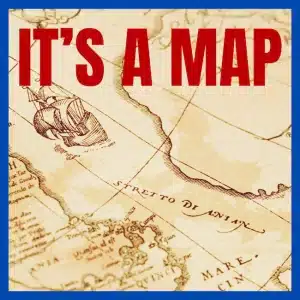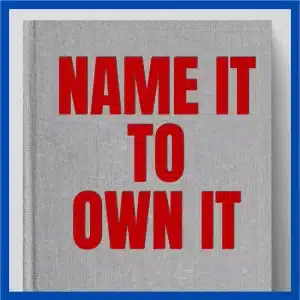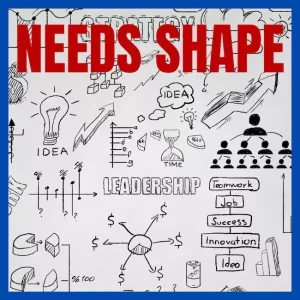You’ve been lied to. There’s a lie that’s everywhere — in your planner, your inbox, your to-do list. And it sounds like this:
“If I just catch up, I’ll finally feel in control.”
But you don’t catch up. Not for long. Not really.
That’s the productivity lie — the false promise that if you optimise hard enough, work fast enough, plan smart enough… you’ll reach this magical place where you’re finally on top of everything.
In his book Four Thousand Weeks, Oliver Burkeman exposes this lie — and offers a deeply freeing truth:
You’ll never catch up. And that’s okay.
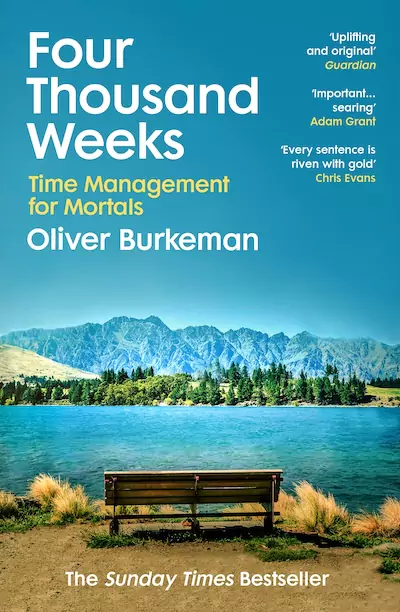
The Fantasy of “Catching Up”
Let’s be honest: most of us are haunted by the idea that we’re behind.
- Behind on emails.
- Behind on goals.
- And behind on life.
And productivity culture feeds that feeling — it tells us if we just do more, faster, we’ll finally feel calm.
But Four Thousand Weeks challenges that illusion.
Because the truth is: the list never ends. The inbox refills. Life doesn’t pause, so you can catch up.
The real problem isn’t how much you have to do – It’s believing you should be able to do it all.
The Productivity Lie Exposed
This is the productivity lie:
Your value comes from how much you get done. That peace will come once the list is finished. That you just need more time, or a better system.
But Four Thousand Weeks reframes that entirely.
“There’s no moment when life will finally be under control.”
Because time isn’t a puzzle you’ll solve. It’s a reality you’re living in — right now.

The Emotional Cost of the Lie
Let’s talk about what this lie costs you.
- It costs presence.
- It costs peace.
- And it keeps you chasing — and never arriving.
You say things like:
- “As soon as I get through this week…”
- “Once I finish this project…”
- “When things calm down…”
But calm never arrives. Because the goalposts always move.
In Four Thousand Weeks, Burkeman reminds us that life isn’t waiting for you at the end of your to-do list.
Life is happening right now – even in the unfinished.
What If I Never…
12 months ago, I wrote a post titled ‘I didn’t know it, but my life was about to change.’
It was my story of heading off for my daily coffee to plan my day. This was my usual morning routine.
But instead, I wrote down a long list of the books and the art projects that I had started and hadn’t finished.
I was shocked to realise I wasn’t fulfilling my life’s work. And this was depressing. I felt like a loser.
So I created a project to fix this.
And for a month or so, I was really inspired. I wrote lots and even dug out my old artworks to finish. I even wrote a series of blog posts: here, here and here.
I thought, ‘if only I could finish this project, then I’d be happy and successful’.
That lasted about a month. Then the wheels fell off and I lost interest. At the time, I didn’t know why.
But then I read Burkeman’s book, Four Thousand Weeks, and it all made sense.
- I was playing catch-up.
- I was chasing past glories.
- And I was trying to fix my regrets.
Then I realised that even if I completed all of these projects, there would be more projects. And some of these would be unfinished too.
Eventually, I asked myself:
“What if I never catch up?”
And weirdly… that question set me free. I let go of the fantasy.
Sure, I could finish those projects, but I no longer felt like I had to. All I needed was to pick one project and focus on that.
I chose what mattered most. I started living in time, not trying to reclaim it or control it.
 The Shift: Let Go and Choose
The Shift: Let Go and Choose
Here’s what I’ve learned:
- You don’t need more hours in the day.
- You need a better relationship with time.
- The goal isn’t to finish everything.
The goal is to choose what matters — and make peace with the rest.
Letting go of the productivity lie isn’t failure. It’s wisdom.
Because you only get Four Thousand Weeks – And you don’t want to spend them racing toward a finish line that doesn’t exist.
You are Enough
The productivity lie is loud. But the truth is simple:
- You’re not behind.
- You’re not broken.
- And you’re just human.
And this is more than enough.
More on Four Thousand Weeks and The Productivity Lie
If this resonated with you, check out the other posts in this series based on Four Thousand Weeks, then read these posts next:


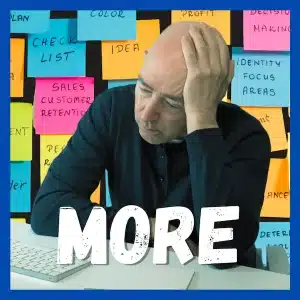 The Shift: Let Go and Choose
The Shift: Let Go and Choose